Direct PDF download:
http://bit.ly/EUReferendumAnalysis2016_Jackson-Thorsen-and-Wring_v1Thanks to all of our contributors and production staff who helped make the quick turnaround possible. We hope it makes for a vibrant and engaging read!
TABLE OF CONTENTS
Introduction: the Brexit campaign (Daniel Jackson, Einar Thorsen and Dominic Wring)
Section 1: Context
1. EEC/EU campaigning in long-term perspective (Jay Blumler)
2. From Super-Market to Orwellian Super-State: the origins and growth of newspaper scepticism (Dominic Wring)
3. Understanding the role of the mass media in the EU Referendum (Mike Berry)
4. Brexit: the destruction of a collective good (Chris Gifford)
5. How the Brexit outcome has changed our understanding of referendums (John Fitzgibbon)
6. The referendum and Britain’s broken immigration politics (Andrew Geddes)
7. The great miscalculation: David Cameron’s renegotiation and the EU Referendum campaign (Andrew Glencross)
Section 2: Politics
8. Rhetoric of excess (James Martin)
9. Myth versus fact: are we living in a post-factual democracy?(Susan Banducci and Dan Stevens)
10. Destroying and building democracy, a German view(Catherine Goetze)
11. Remembrance of Referendums Past: Scotland in the campaign (Michael Higgins)
12. Public personalities in the EU debate: Elites vs. the majority and Bullingdon resurgent(Nathan Farrell)
13. Healthier ever after? The NHS as a campaign issue (Tamara Hervey)
14. Wales, immigration, news media and Brexit (Kerry Moore)
15. The referendum campaign and the public’s constitutional understanding (David Yuratich)
16. The EU referendum and the Country of Origin principle (COO) (Irini Katsirea)
17. Calming the storm: fighting falsehoods, fig leaves and fairy tales (Alan Renwick, Matthew Flinders and Will Jennings)
Section 3: News
18. The press and the Referendum campaign (David Levy, Billur Aslan and Diego Bironzo)
19. The narrow agenda: how the news media covered the Referendum (David Deacon, John Downey, Emily Harmer, James Stanyer and Dominic Wring)
20. Newspapers’ editorial opinions during the referendum campaign (Julie Firmstone)
21. Brexit ‘mansplained’: news coverage of the EU Referendum (Emily Harmer)
22. Scrutinising statistical claims and constructing balance: television news coverage of the 2016 EU Referendum (Stephen Cushion and Justin Lewis)
23. Regulated equivocation: the referendum on radio (Guy Starkey)
24. Referendum night goings on (Stephen Coleman)
25. The view from across the pond: Brexit on American media (Filippo Trevisan)
26. A victory of the nation state: the EU Referendum in the Southern European press (Iñaki Garcia-Blanco)
Section 4: Journalism
27. How our mainstream media failed democracy (Steven Barnett)
28. Divided Britain? We were already divided… (Des Freedman)
29. Deliberation, distortion and dystopia: the news media and the referendum (Charlie Beckett)
30. UK newspapers and the EU Referendum: Brexit or Bremain?(Oliver Daddow)
31. X marks the spot but the Ys have it: Referendum coverage as a boys’ own story (Karen Ross)
32. Mind the gap: the language of prejudice and the press omissions that led a people to the precipice (Paul Rowinski)
33. ‘They don’t understand us’: UK journalists’ challenges of reporting the EU (Anna Wambach)
34. Bending over backwards: the BBC and the Brexit campaign (Ivor Gaber)
35. Bums gone to Iceland: England, Brexit and Euro 2016 (Roger Domeneghetti)
36. It’s the ‘primary definers’, stupid! (Chris Roberts)
37. Brexit: inequality, the media and the democratic deficit (Natalie Fenton)
Section 5: Campaign and Political Communication
38. Why facts did matter in the campaign (Christoph Meyer)
39. Less a soap opera, more a fantasy drama? (John Street)
40. The rhetoric of the EU Referendum campaign (Andrew S. Crines)
41. A (very) brief period of Habermasian bliss (Mick Temple)
42. The toxicity of discourse: reflections on UK political culture following the EU Referendum (Katy Parry)
43. Britishness and Brexit (Frances Smith)
44. Neither tackling lies nor making the case: the Remain side (Kirsty Hughes)
45. Break-point for Brexit? How UKIP’s image of ‘hate’ set race discourse reeling back decades (James Morrison)
46. Referendum campaign broadcasts on television: A generational clash? (Vincent Campbell)
47. Interaction and ‘the floor’ in the televised debates of the EU referendum campaign(Sylvia Shaw)
48. Comedy clubs offered a better quality of debate than the political stage (Sophie Quirk)
49. ‘Project Art’ versus ‘Project Fear’: the art establishment against Brexit (Matt Hills)
50. Notes for editors: what the campaign press releases tell us about Vote Leave and Britain (Paula Keaveney)
Section 6: Parties
51. The triumph and tribulations of Conservative Euroscepticism(Philip Lynch)
52. Celebrity politicians and populist media narratives: the case of Boris Johnson (Mark Wheeler)
53. ‘Tuck your shirt in!’ It’s going to be a bumpy ride: Boris Johnson’s swerve to Brexit (Candida Yates)
54. ‘Conservative party future?’ Party disunity, the media and the EU Referendum (Anthony Ridge-Newman)
55. Cameron and the Europe question: Could it have ended any other way? (Tristan Martin)
56. The Liberal Democrats: the EU Referendum’s invisible party (Andrew Russell)
57. The Durham miners’ role in Labour’s culture wars (Eunice Goes)
58. The immigration debate: Labour versus Leave in the battle to win public trust (Thom Brooks)
59. The age of Nigel: Farage, the media, and Brexit (Neil Ewen)
Section 7: Social Media
60. Leave versus Remain: the digital battle (Andrew Mullen)
61. The results are in and the UK will #Brexit: What did social media tell us about the UK’s EU referendum? (Clare Llewellyn and Laura Cram)
62. Automatic polling using Computational Linguistics: more reliable than traditional polling? (Massimo Poesio, John Bartle, Jacqueline Bechet, Fabio Celli, Carmelo Ferrante, Marc Poch, Hugo Zaragoza and Giuseppe Riccardi)
63. Impact of social media on the outcome of the EU referendum (Vyacheslav Polonski)
64. Talking past each other: the Twitter campaigns (Simon Usherwood and Katharine Wright)
65. Political memes and polemical discourse: the rise of #usepens (Mary Mitchell)
66. E-newsletters, persuasion and the referendum (Nigel Jackson)
67. United by what divides us: 38 Degrees and the EU Referendum (James Dennis)
68. Boris, Brexit or bust (Alec Charles)
Section 8: Voters
69. What explains the failure of ‘Project Fear’? (Jane Green)
70. Workers rights in the EU and out: social class and the trade unions’ contribution to the debate (Jen Birks)
71. ‘I want my country back’: Emotion and Englishness at the Brexit ballotbox (Russell Foster)
72. Mixed feelings: how citizens expressed their attitudes towards the EU (Darren G. Lilleker)
73. ‘We want our country back’ – stop sneering, start listening (Michael Skey)
74. Young people in a changing Europe: British youth and Brexit 2016 (Matt Henn and Darren Sharpe)
75. Bonfires and Brexterity: what’s next for women? (Charlotte O’Brien)
76. The ‘Referendum Bubble’: what can we learn from EU campaign polling? (Louise Thompson)
77. Did the EU Referendum boost youth engagement with politics? (Stuart Fox and Sioned Pearce)
78. Campaign frames in the Brexit referendum (Sofia Vasilopoulou)
79. The emotional politics of the EU Referendum: Bregrexit and beyond (Karin Wahl-Jorgensen)
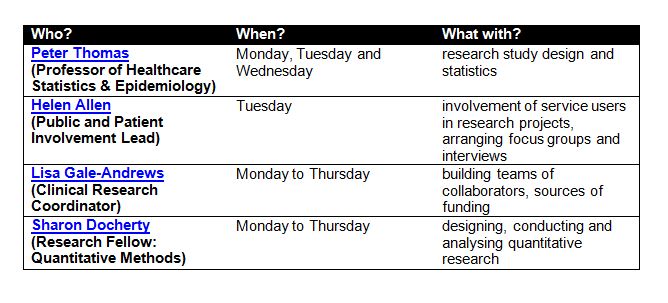
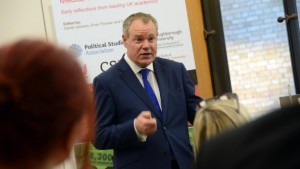
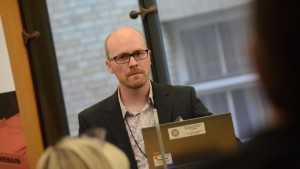
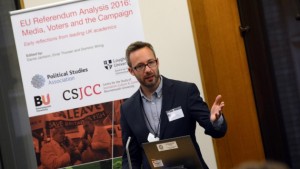

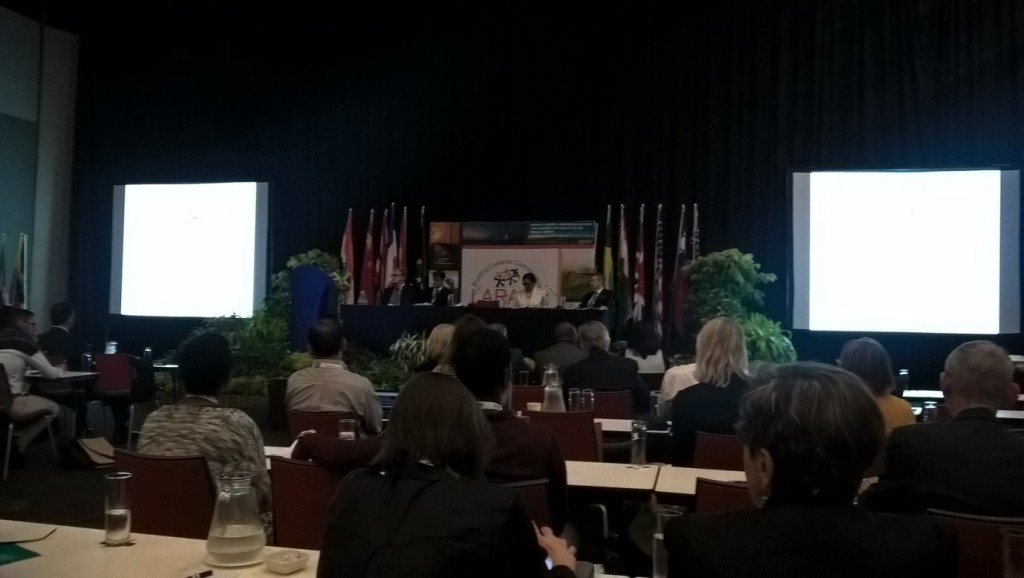 omy (www.larasa.org.za).
omy (www.larasa.org.za).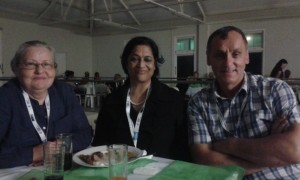
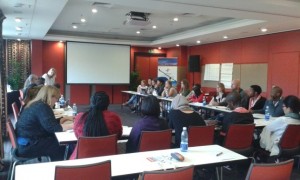 een Corridor (DGC), organization that offers adventure and eco tours along the uMngeni River Valley, presented their recommendation for the Inanda community development at the congress.
een Corridor (DGC), organization that offers adventure and eco tours along the uMngeni River Valley, presented their recommendation for the Inanda community development at the congress.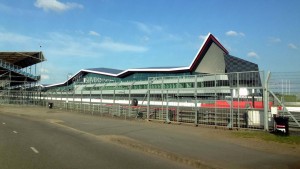
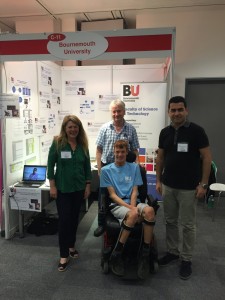 The purpose of the validation was to present the SmartAbility Framework, which considers how technology can support people with disability and addresses the concept of not having a ‘single technology solution to suit all disabilities’. It consists of seven elements; Disabilities, Impairments, Range of Movements, Movement Characteristics, Interaction Mediums, Technologies and Tasks, interlinking aspects of Human Computer Interaction. The roadshow was the first opportunity to validate the framework as it had been developed based on state of the art literature reviews and results from conducted feasibility trials and user experimentations. The validation was performed using a paper-based version of the framework and involved the participants/manufacturers completing the first four elements, to describe how their disabilities affect their Range of Movement. The knowledge contained within the framework was then used to provide recommendations of suitable Interaction Mediums and Technologies that could potentially improve their quality of life. Each participant completed a questionnaire to provide their views on the framework. In addition to the validation, we demonstrated Smartglasses (a Recon Jet), to assess the usability for people with disability.
The purpose of the validation was to present the SmartAbility Framework, which considers how technology can support people with disability and addresses the concept of not having a ‘single technology solution to suit all disabilities’. It consists of seven elements; Disabilities, Impairments, Range of Movements, Movement Characteristics, Interaction Mediums, Technologies and Tasks, interlinking aspects of Human Computer Interaction. The roadshow was the first opportunity to validate the framework as it had been developed based on state of the art literature reviews and results from conducted feasibility trials and user experimentations. The validation was performed using a paper-based version of the framework and involved the participants/manufacturers completing the first four elements, to describe how their disabilities affect their Range of Movement. The knowledge contained within the framework was then used to provide recommendations of suitable Interaction Mediums and Technologies that could potentially improve their quality of life. Each participant completed a questionnaire to provide their views on the framework. In addition to the validation, we demonstrated Smartglasses (a Recon Jet), to assess the usability for people with disability.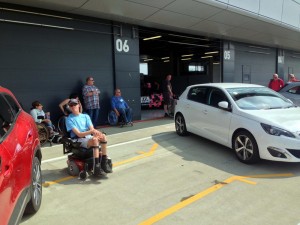


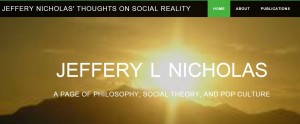
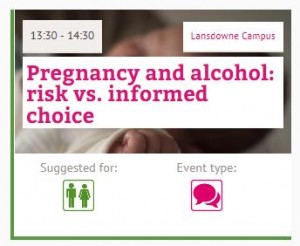
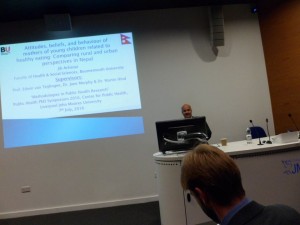



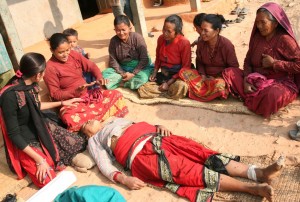
 Andrew Harding and Colin Pritchard have recently had a paper published in the
Andrew Harding and Colin Pritchard have recently had a paper published in the 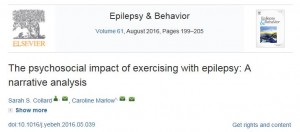











 Beyond Academia: Exploring Career Options for Early Career Researchers – Online Workshop
Beyond Academia: Exploring Career Options for Early Career Researchers – Online Workshop UKCGE Recognised Research Supervision Programme: Deadline Approaching
UKCGE Recognised Research Supervision Programme: Deadline Approaching SPROUT: From Sustainable Research to Sustainable Research Lives
SPROUT: From Sustainable Research to Sustainable Research Lives BRIAN upgrade and new look
BRIAN upgrade and new look Seeing the fruits of your labour in Bangladesh
Seeing the fruits of your labour in Bangladesh ECR Funding Open Call: Research Culture & Community Grant – Apply now
ECR Funding Open Call: Research Culture & Community Grant – Apply now ECR Funding Open Call: Research Culture & Community Grant – Application Deadline Friday 12 December
ECR Funding Open Call: Research Culture & Community Grant – Application Deadline Friday 12 December MSCA Postdoctoral Fellowships 2025 Call
MSCA Postdoctoral Fellowships 2025 Call ERC Advanced Grant 2025 Webinar
ERC Advanced Grant 2025 Webinar Update on UKRO services
Update on UKRO services European research project exploring use of ‘virtual twins’ to better manage metabolic associated fatty liver disease
European research project exploring use of ‘virtual twins’ to better manage metabolic associated fatty liver disease